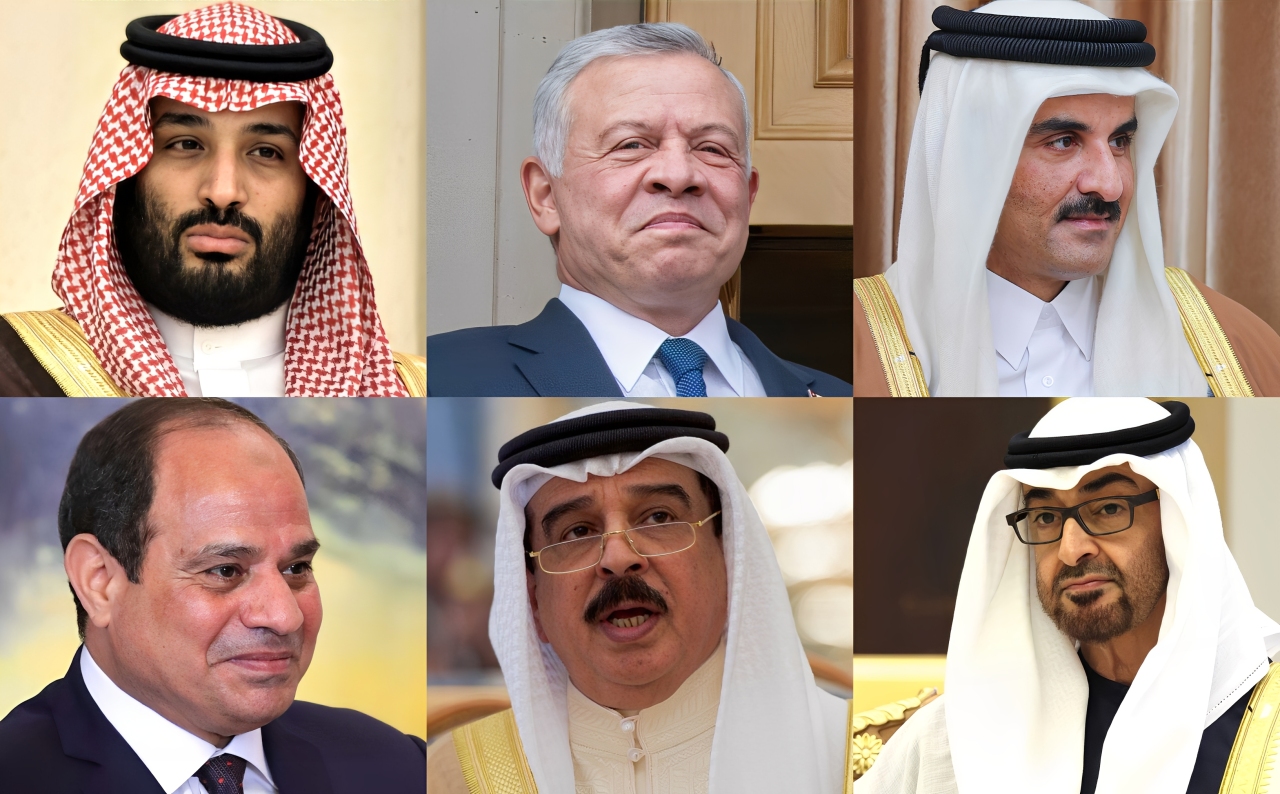
Elham Asaad Buaras
While Arab leaders publicly condemned Israel’s campaign in Gaza as a “genocidal war,” leaked US military documents show they were simultaneously deepening secret military and intelligence ties with Israel.
This covert partnership, quietly nurtured under Washington’s supervision, sits at the heart of the “Regional Security Construct” — a three-year initiative led by the US Central Command (CENTCOM).
According to documents obtained by the International Consortium of Investigative Journalists (ICIJ) and The Washington Post, the programme outlines a network of military cooperation linking Israel with six Arab states: Bahrain, Egypt, Jordan, Qatar, Saudi Arabia, and the United Arab Emirates.
The initiative brought senior officers together for joint planning and exercises in Bahrain, Egypt, and Qatar, focusing on shared threats — chiefly Iran and underground tunnel warfare. But the covert cooperation was thrown into turmoil on September 9, when Israel launched an airstrike in Qatar targeting Hamas leaders.

By President.az, CC BY 4.0, Link
Heads of state and senior officials gather for the signing ceremony of the Gaza Peace Agreement at the Peace Summit in Sharm El-Sheikh, Egypt, on October 13, 2025. The public event stands in contrast to a leaked US military report from earlier in the year, which detailed a separate, confidential initiative for military coordination between some of the same Arab nations present.(Credit: Wikimedia)
The incident starkly exposed the gulf between private collaboration and public condemnation, prompting Prime Minister Benjamin Netanyahu to issue an apology to Qatar weeks later under US pressure.
The leaked files offer a rare glimpse into the workings of the partnership. In May 2024, Israeli and Arab military officials met at Al Udeid Air Base in Qatar, with the Israeli delegation flying directly to the secure US facility to avoid civilian entry points and public detection.
CENTCOM briefing slides identify Iran, described internally as part of an “Axis of Evil,” as the primary driver for the collaboration. The partnership was presented to the “Five Eyes” intelligence alliance (Australia, Canada, New Zealand, the UK, and the US), with Kuwait and Oman listed as “potential partners.”
The collaboration included tangible joint efforts. In January 2025, US forces trained Arab and Israeli officers at Fort Campbell Army Base on neutralizing subterranean tunnels—a tactic heavily associated with Hamas. Another document outlined “information operations” to promote a “narrative of regional prosperity,” countering Iran’s portrayal of itself as the defender of the Palestinian cause.
To manage this stark contradiction, CENTCOM insisted the construct “does not form a new alliance” and that all meetings were to be held “in confidence.” Attendees were explicitly warned: “MUST NOT DO: Take photographs or engage with media.” Briefings even included dietary notes—“No pork / crustaceans”—to accommodate Jewish and Muslim participants.
Despite the covert coordination, Arab governments continued to voice strong public condemnation of Israel’s actions. At the UN General Assembly, Qatari Emir Sheikh Tamim bin Hamad Al-Thani denounced the offensive as “a genocidal war waged against the Palestinian people,” while Saudi Arabia’s Foreign Ministry accused Israel of pursuing a policy of “starvation” and “ethnic cleansing” against Palestinians.
Feature photo: Arab leaders whose nations are part of the covert “Regional Security Construct” with Israel: (L–R) Crown Prince Mohammed bin Salman of Saudi Arabia; King Abdullah II of Jordan; Emir Sheikh Tamim bin Hamad Al Thani of Qatar; President Abdel Fattah El-Sisi of Egypt; King Hamad bin Isa Al Khalifa of Bahrain; and President Sheikh Mohamed bin Zayed Al Nahyan of the UAE. (Credit: Wikimedia)